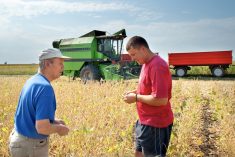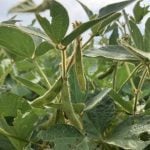Creativity is what your brain discovers when it isn’t concentrating on logic, order and trying too hard
— Barbara Florio Graham
Tapping Into Your Innate Creativity
By Barbara Florio Graham
Next time you’re stumped when trying to solve a problem or come up with a new idea, try these tips.
Surround yourself with items from nature, water (a table fountain will do), lots of colour, visual images and music.
If you have a specific problem to solve, work on blank paper with coloured pencils and try to draw your ideas instead of verbalizing them. Take a walk, a shower or listen to instrumental music.
Read Also

The big squeeze: How to be fair to siblings during farm succession
Managing sibling business relationships on family farms.
Draw with your non-dominant hand. Don’t have anything particular in mind, just let your hand doodle on the page. Pick up other coloured pencils at random and see what happens.
Creativity isn’t a light bulb, says Bill Buxton. If you wait for it to switch on in a blaze of pure, bright inspiration, the odds are that you’re going to be waiting a long, long time.
Worse, you’ll feel you aren’t creative. And worst of all, you’ll feel that you can’t innovate, so you have no choice but to carry on doing business the way you always did while others around you seem to be getting where they want to go.
All of us have the power to lift ourselves out of any rut we find ourselves in, Buxton says. The question isn’t whether you’re creative, it’s whether you know how to harness the power to innovate.
Buxton should know. He’s principal researcher for Microsoft Research, a position that he climbed to through exactly the kind of serendipitous route that parallels what goes on in today’s farms.
Buxton began with a B.A. in music from Queen’s University and a career as a musician, but then got interested in computerized music, which took him back to school to learn about computer science, which led to him becoming a world-class expert in human-computer interaction.
Now, in addition to his Microsoft research, Buxton is on faculty at the University of Toronto, he’s a regular columnist for BUSINESS WEEKLY, and he’s a sought-after consultant for businesses and governments that want to perk up their innovation success. (For more, be sure to check out
“Edison invented almost nothing,” Buxton reminds me when we talk. “He was really just a good talent scout.” Buxton then likens creativity to mining.
“You need to become a prospector of good ideas,” says Buxton. “Make sure you have the skills and technology to learn how to mine it, refine it and get it to market.”
It’s also important to know the components of creativity, because they can be managed for enhanced productivity.
Being willing to take risks is an important part of creativity. For the most part we are a very risk-averse society, but farmers live with risk every season. As professionals they are well-suited to innovate, says Buxton.
But farmers may be too focused on farming.
For a study commissioned by the Ontario government on what made people innovative, Buxton studied the backgrounds of Canadians who had won Nobel Prizes. What he found was that almost every single one had a professional level of competence in a second area such as music, art, sport or theatre.
This is not a coincidence, says Buxton. “One learns team work and creativity in these areas.” Buxton credits sports and the industrial arts (woodworking, metal working, etc.) as being the most critical parts of his education. “It allowed me to balance the abstract with a sense of the materials.” He is adamant we should be fighting to keep these things in our school system.
Buxton is also famous for his mantra: Always be bad at something you are passionate about.
Farmers can be stifled by their pursuit of excellence. By their nature and because of economics, they’re always shooting to grow the very best crop of canola or corn. That all makes perfect sense, to a point. But after a point, the endless pursuit of production skill can produce diminishing returns.















